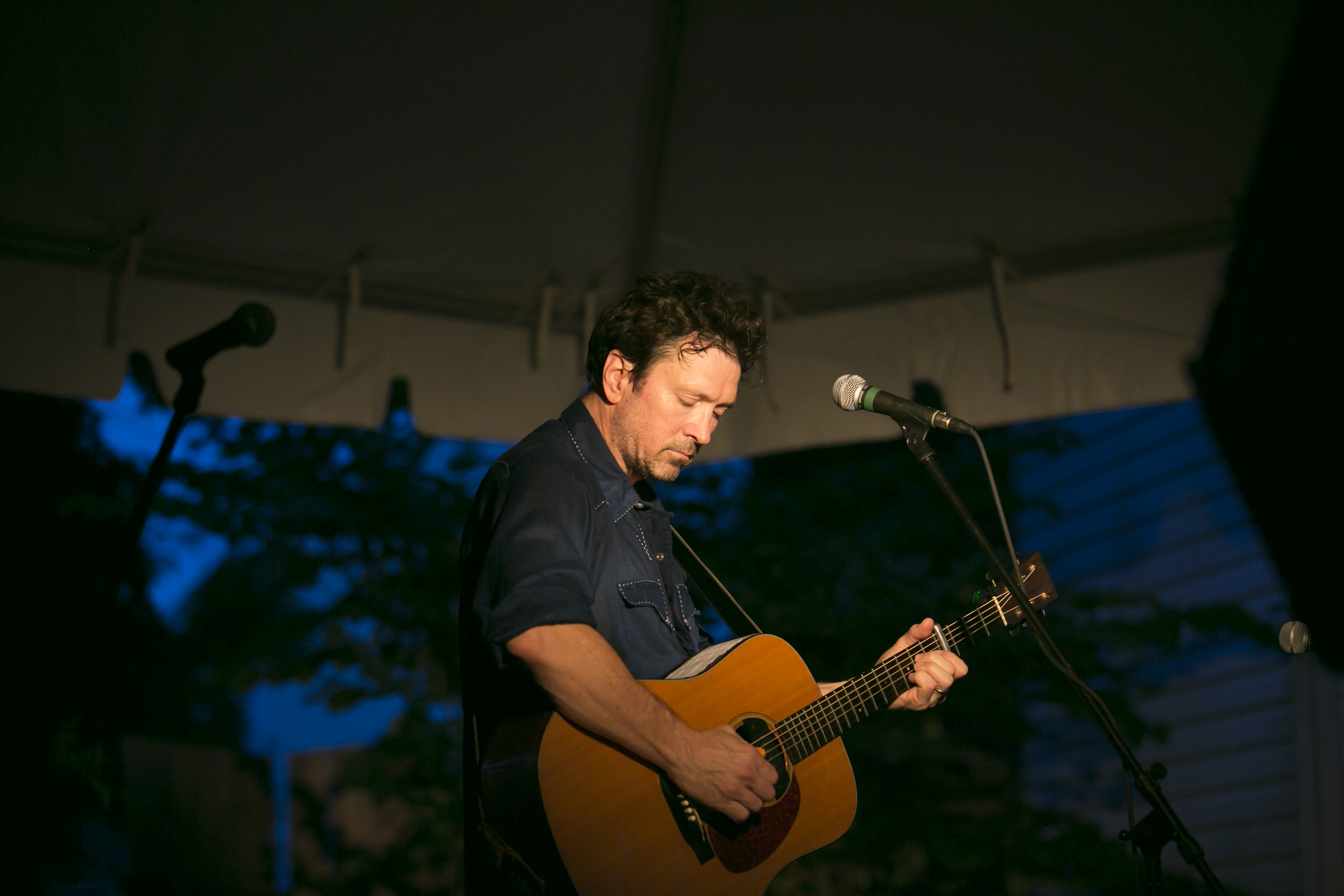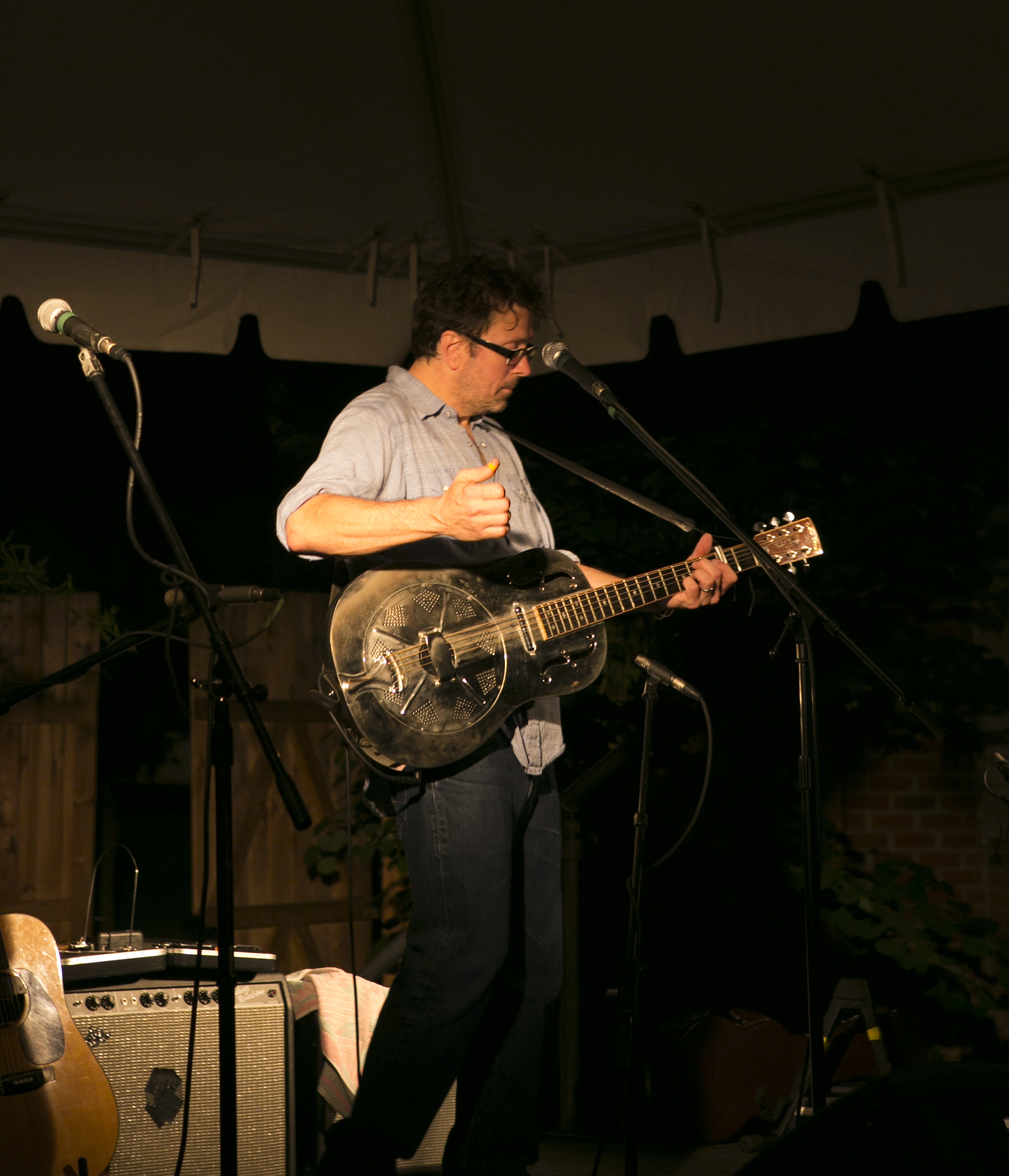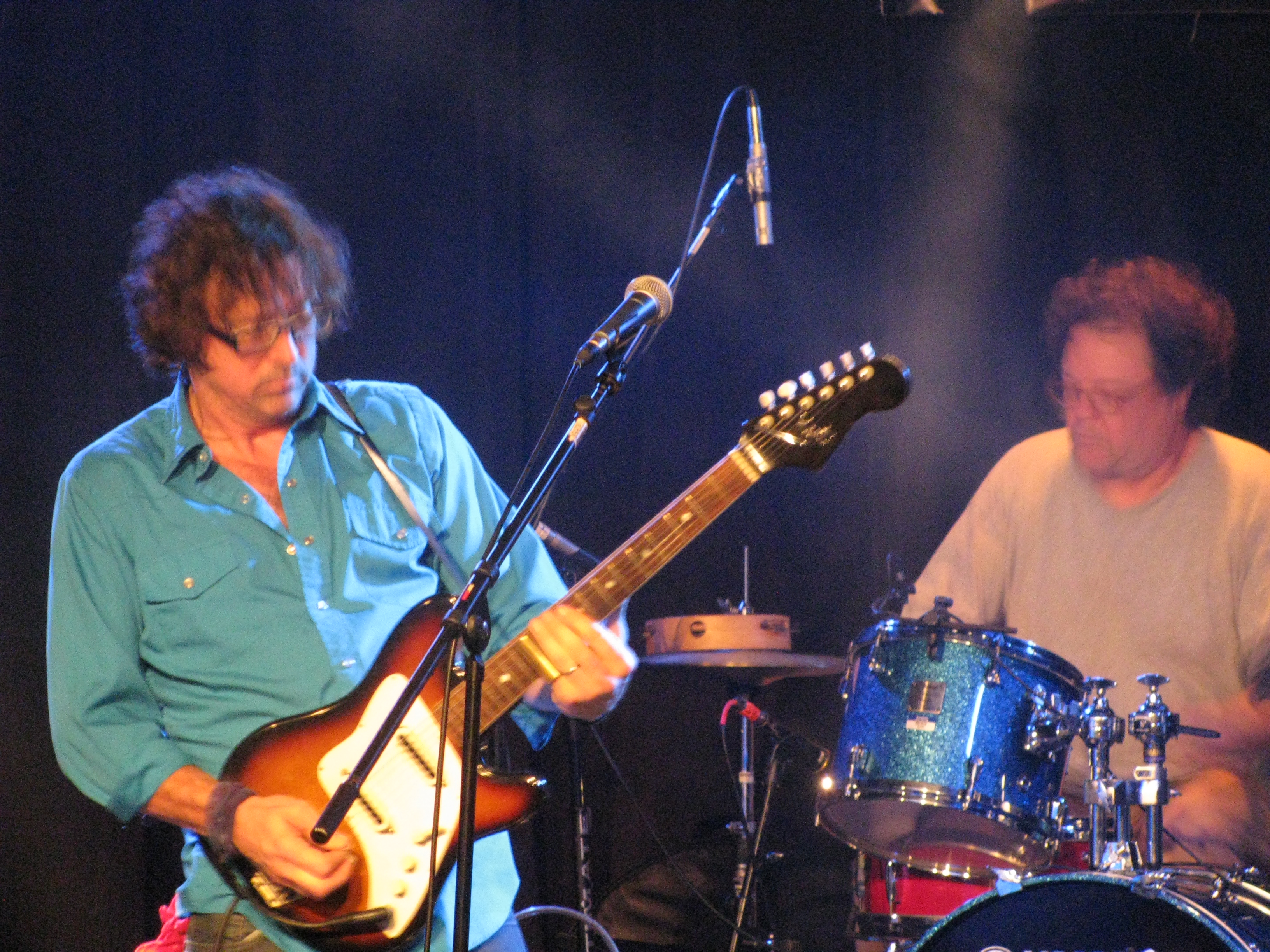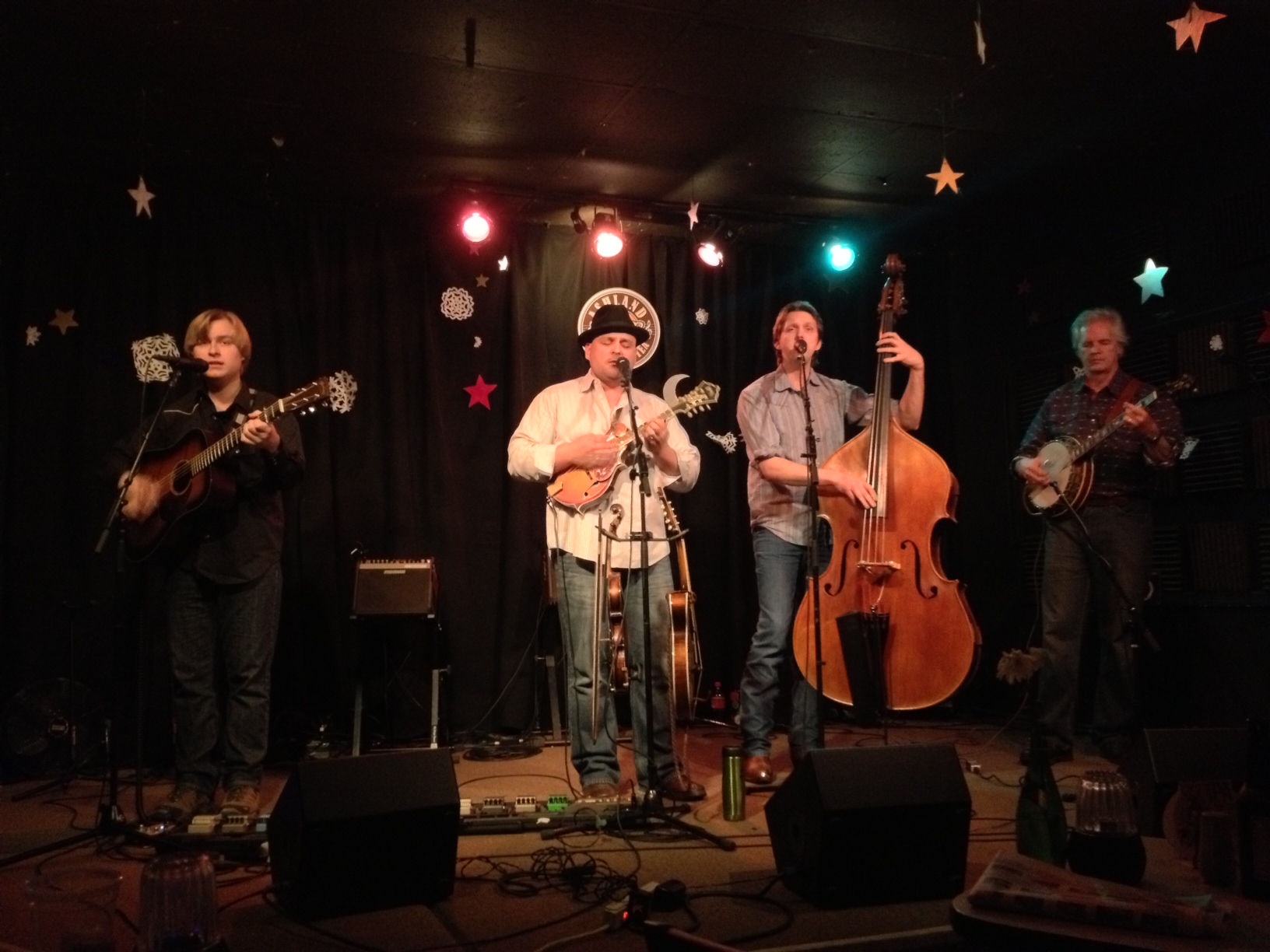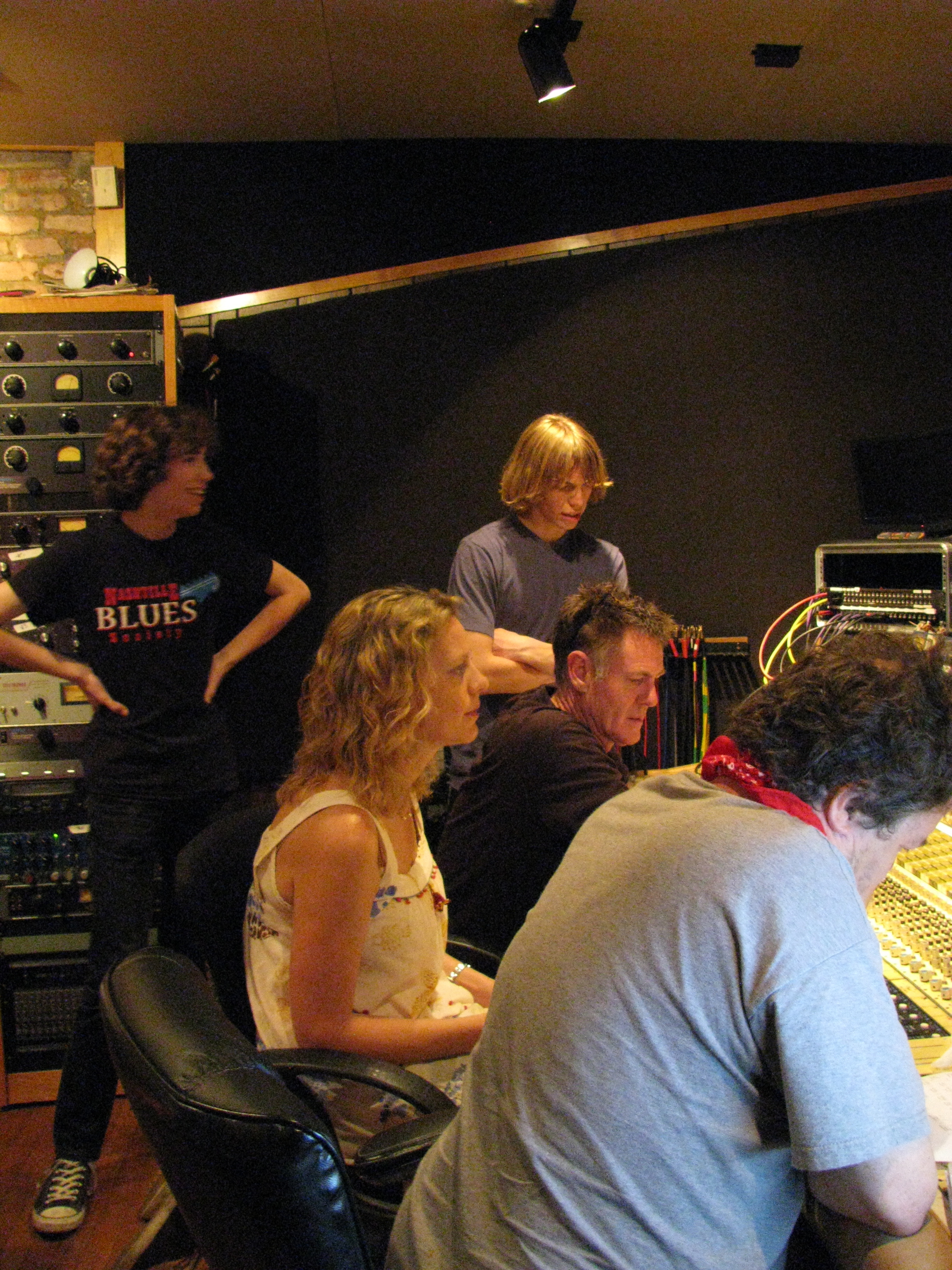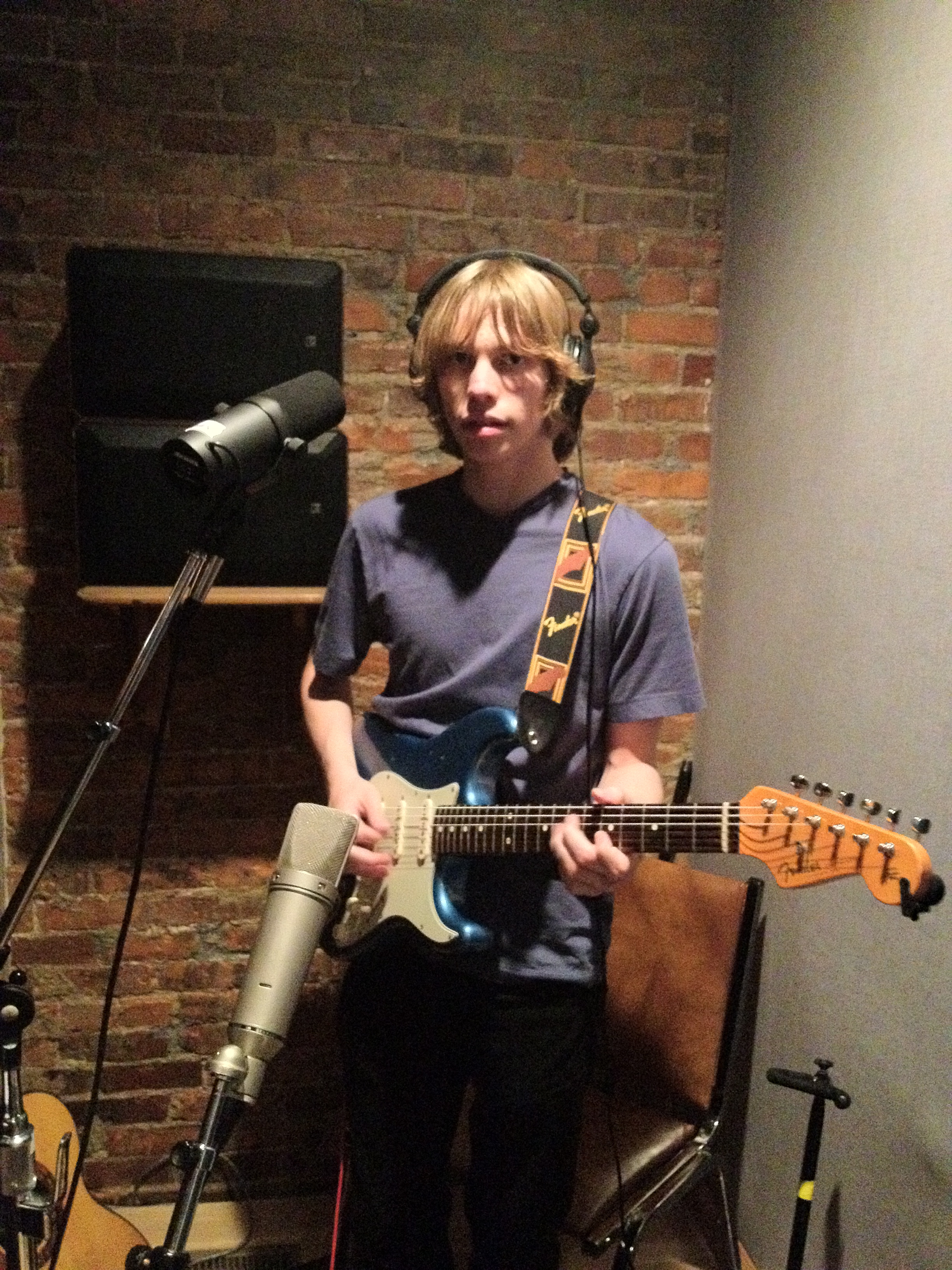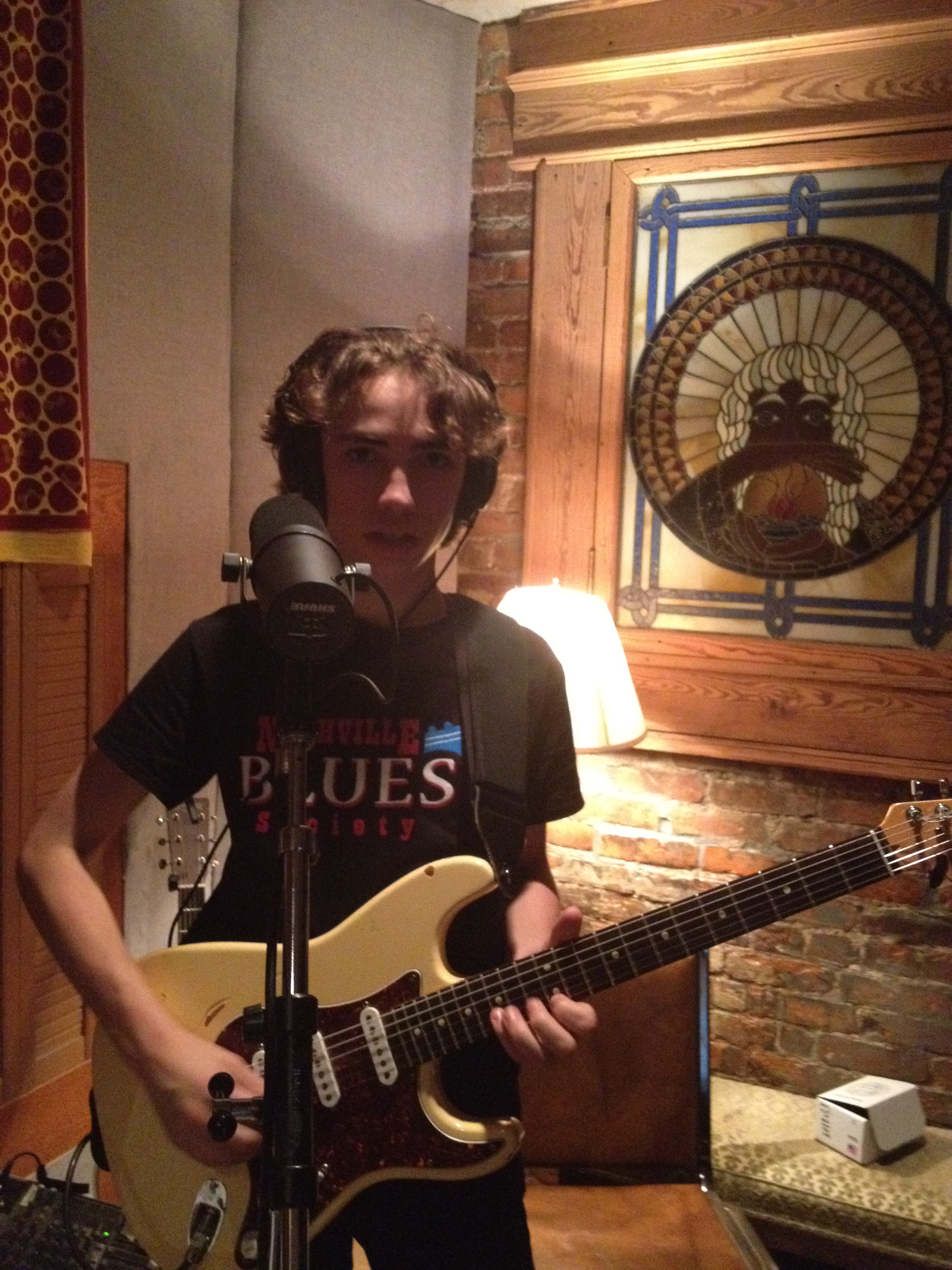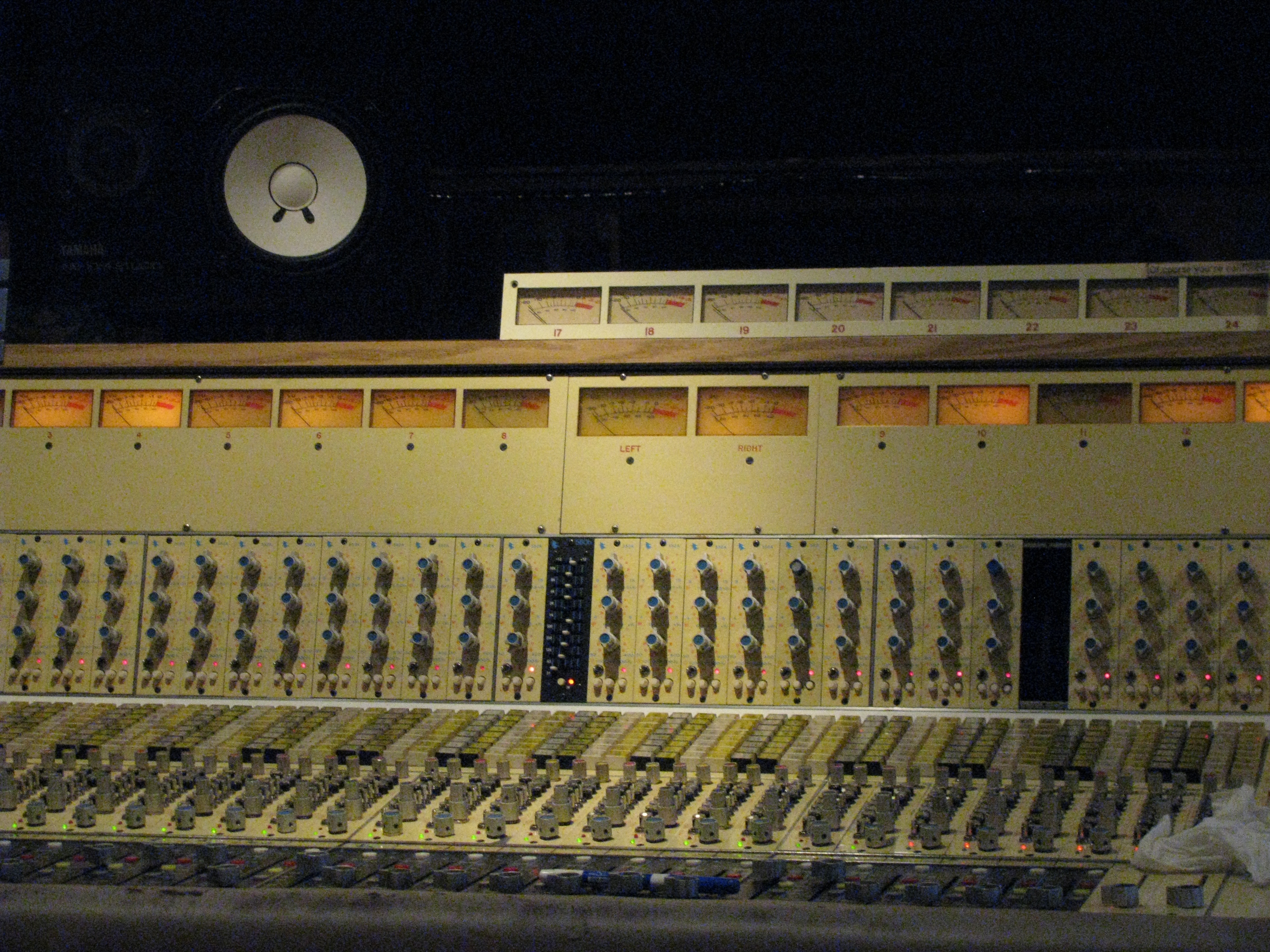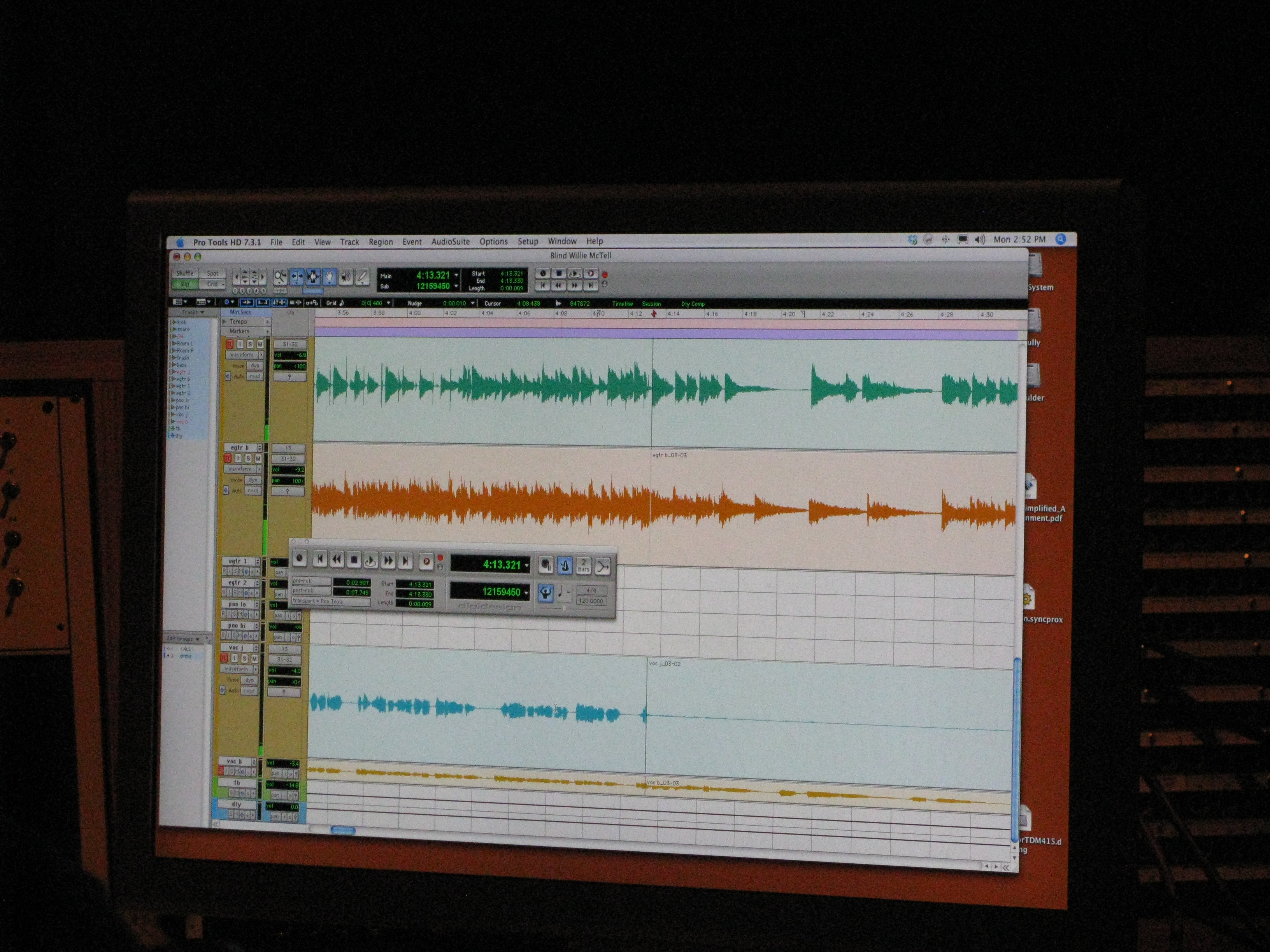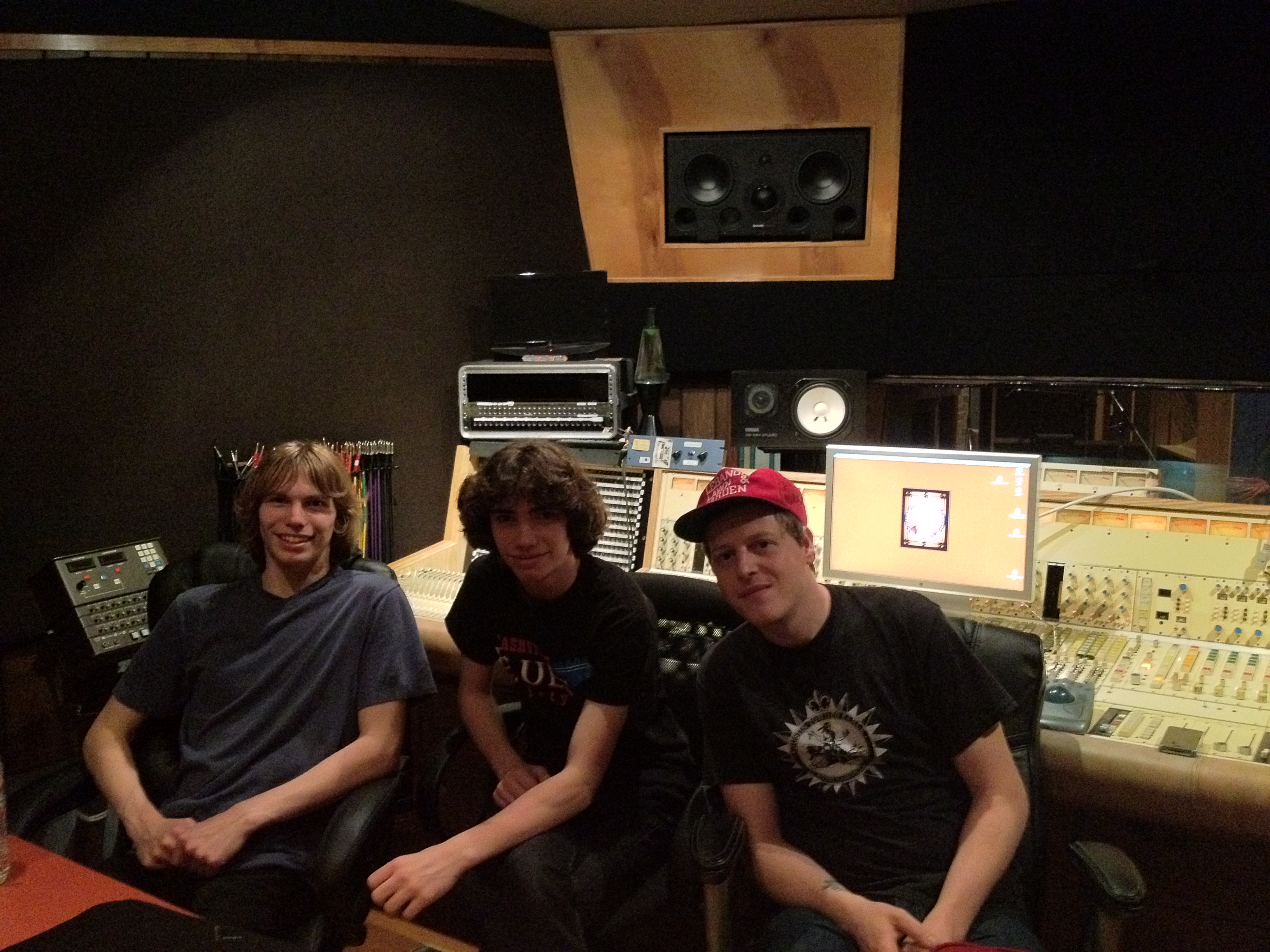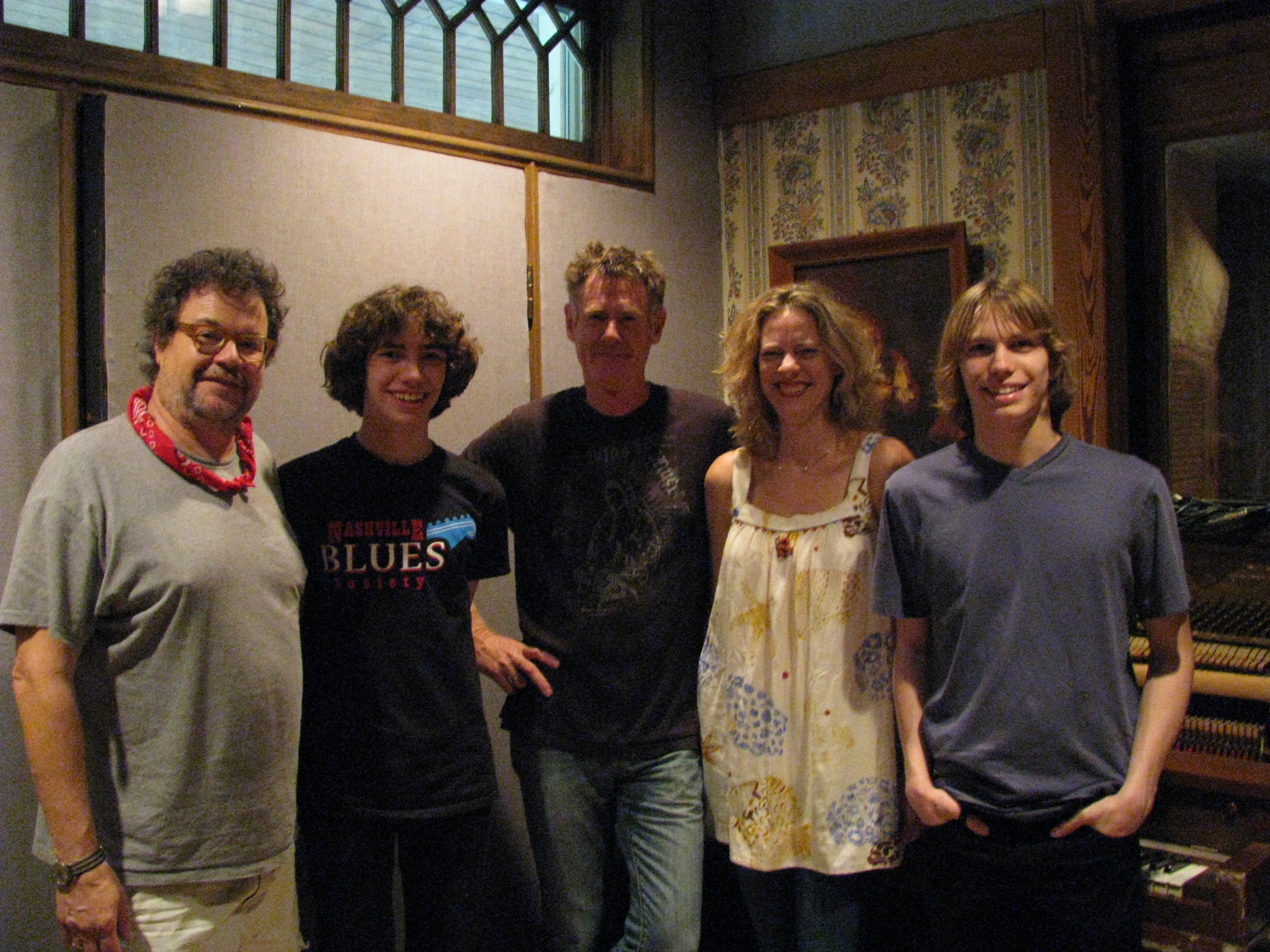Jonathan Byrd interview:
Jonathan Byrd writes and performs songs that sound as if they could have been written 50, 100, or 200 years ago, as many years in the future, or yesterday. His songs, like the all the best ones, are timeless. A captivating performer, he often tours solo, supporting himself with his deft flatpicking and soulful vocals. When he can, he brings his part-time band, The Pickup Cowboys, with him. Comprised of violinist Omar Ruiz-Lopez, cellist Paul Ford, and guitarist/mandolinist/saw-player Johnny Wakon, The Pickup Cowboys know exactly how to accompany Byrd and his rootsy, soul-driven music. In April of this year, Jonathan visited Ashland VA’s Ashland Coffee & Tea with The Pickup Cowboys, and proceeded to give one of the best performances we’ve seen at the venue. We joined them in the green room before the show for a brief interview:
Brian: Tell us how and when you started playing music.
Byrd: I don’t know. I can tell you when I started playing guitar… I was like, eight years old. I didn’t really get serious until 13 or 14. But I always played something. My mom was a pianist, so there was always a piano in the house. My brother had a guitar… I was always singing, so… I don’t know.
Jeff: So… it was always there?
Byrd: Yeah. I mean, I can kind of tell you when I started playing certain kinds of music, or maybe when I started writing songs, that kind of thing.
Omar Ruiz-Lopez: When you got serious…
Byrd: When I picked up the guitar, I got really obsessed with music. And then, when I was about 28, I got serious about trying to create a business around it.
Jeff: So you’ve always been a businessman, a corporate man?
Brian: [laughs]
Byrd: Honestly, I just did whatever I could do… Like, generation X calls it a “McJob”, whatever that job is that has almost no responsibility, so that I could go play gigs whenever I wanted to… I could call in late. I worked in a carwash… I worked at Pizza Hut… I delivered pizzas for a couple years.
Jeff: I’ve heard that you play violin, but I don’t think I’ve ever actually seen or heard you play it.
Byrd: No, there’s a reason for that! There’s a reason why I’ve hired a violin player. I’m a violin owner! I have one, but I just haven’t had any time to really focus on that.
Omar: You should hear the guys on his first two albums, “Wildflowers” and “The Sea and The Sky”.
Byrd: And “The Waitress”. Jason Cade… Bill Hicks is on “Wildflowers”.
Jeff: Bill Hicks, I’ve heard of him.
Omar: Not that Bill Hicks…
Byrd: Yeah, there’s a comedian Bill Hicks. He (the violinist) is a member of The Red Clay Ramblers… real old-time fiddle player.
Brian: What do you think is the biggest mistake musicians commonly make?
Byrd: I think maybe the biggest mistake that I’ve made in my own life playing music, is to not include whoever’s listening, as a writer and a player and a performer. Like, there’s nights when you play, and all you’re getting paid is three beers, and you’re about three beers into it, and you’re not really connected to them (the audience). Or even just playing so much that there’s no space in the music for them to go into.
Brian: To insert their thoughts into, really.
Byrd: Yeah. Everybody needs space, and they need to be invited in.
Jeff: Is there anything that you do to get yourself in the mood to write a song?
Byrd: I get up really early in the morning and make a cup of coffee. That’s kind of how I do it now, because I have a three year old, and if I don’t get up an hour and a half before he does, it’s really hard to get my day started right. My day tends to run however I begin it. So if I don’t get up and do something creative, before everybody else gets up, then it’s very hard to get into a creative mode later on. The other way that I create is after rehearsal… I take these guys (referring to the band) out, and I’m really good and warmed up, and I’ll go downstairs and make sure everything’s cool and everybody’s gone to bed… Then I go back upstairs, and I’ll work on songs. Sometimes ‘til two or three in the morning, and I pay the price the next day, but… I’ve been playing with them for like, three hours, and I’m in this really musical place.
One time I wrote a song by picking words at random from a big dictionary that somebody had given me… Generally I find within twenty or thirty minutes of just doing something, to write, or to generate some creative output, I get into the mood. It’s like showing up to any job. Nobody feels like making pizzas today, but you know… you show up and you get in the swing of it and people that you like are working there… Then before you know it, you’re in the middle of the day, and you’re having fun slinging pizzas! It’s kind of the same way with writing… Just to show up with something to do, even if you don’t like it, just keep working on it, and eventually you’ll find that you’re having fun creating something.
Brian: What’s the strangest thing that’s ever happened to you onstage?
Byrd: The strange-est?
Jeff: Well, strange would work. If nothing strange-est has happened…
(long pause)
Brian: You don’t care to divulge that information?
Paul Ford: He’s pretty in control onstage. (chuckles)
Byrd: You know, we used to play this place… I kind of loved it. It was called Dick’s Clam & Cow, it was in Virginia Beach, and they sort of encouraged chaos there… the waitresses would come by and throw napkins at you…
Jeff: Trying to make you angry?
Byrd: Yeah. All the tables in the place were heavy, oak picnic tables. You could get on the table and dance, it wouldn’t hurt anything, so they sort of encouraged that kind of stuff… There were some pretty wild shows at that place.
Paul: I saw a guy pull an orb out, and do this thing… It was when U2 was just breaking, and he was trying to cop this thing… Bono had this thing with the mic and the flag, and he had props. It was cool; it was new. So, we’re playing this gig, and there’s this band; they were okay… and then this dude pulls this orb out. It was like terrible theatre, like they wanted to be Queen, or they wanted to have this moment… and people were just throwing shit, and screaming, “you suck”! They went from being, like, getting over, to “your career is over”! In the middle of this gig!
Byrd: Oh, that’s terrible…
Paul: And the guy, he played through it all. It (the prop) was like some mini bowling ball thing.
Johnny Wakon: “It’s supposed to be eighteen feet, not eighteen inches!”
Paul: Exactly. I love that they went for it, but it killed them. That was, like, ’86-’87… How old are you guys?
Jeff: That was about ten years before we were born.
Johnny: Oh, wow.
(a knocking is heard)…
Paul: My brother’s here! (laughing)
Jeff: Looks like you better get out there!

